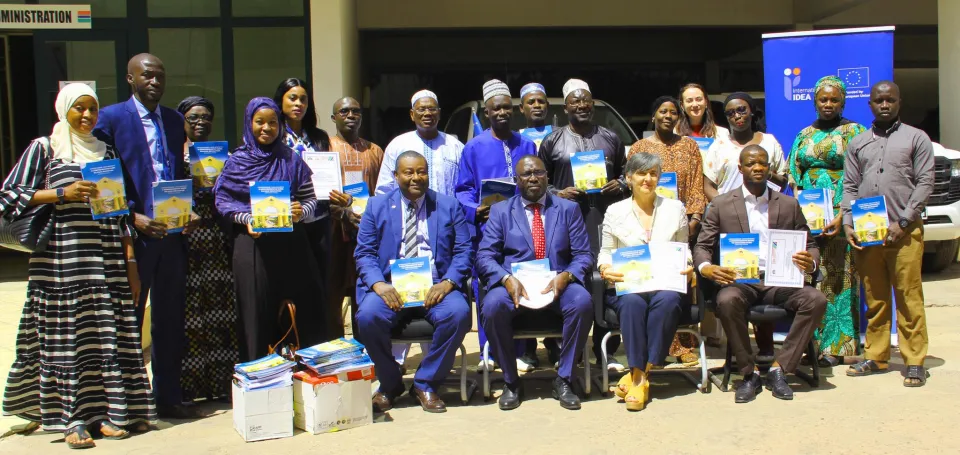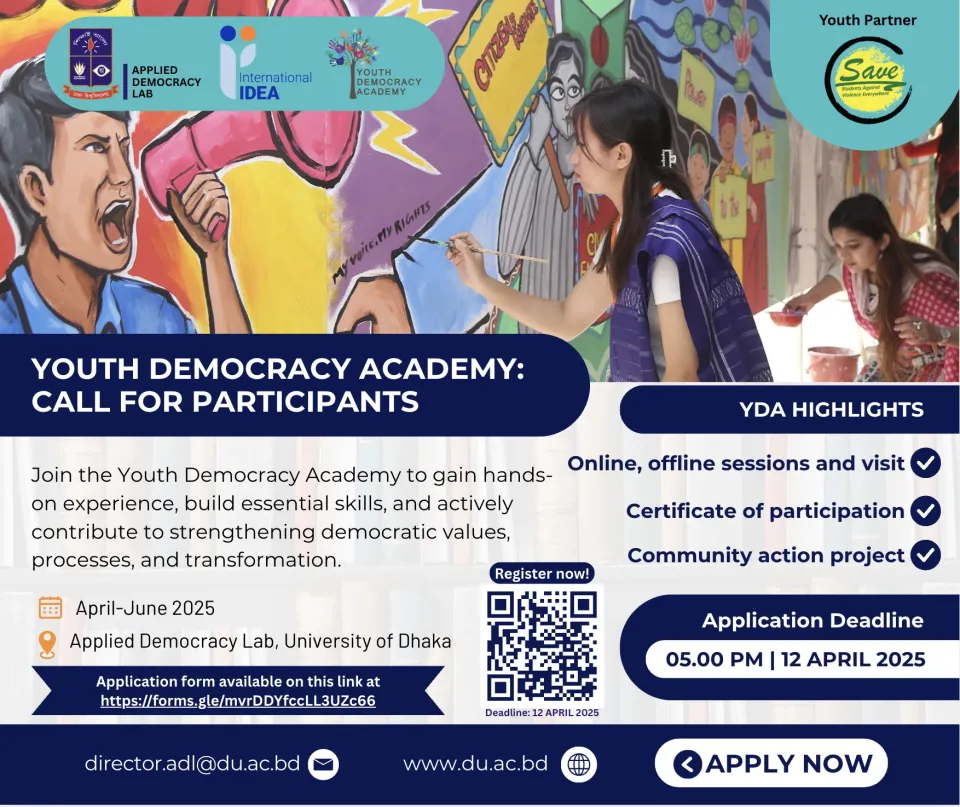Democracy as the foundation for a Global Digital Compact

The United Nations’ Global Digital Compact (GDC) is a developing framework –now in its third round of revision– that establishes international guidelines and norms for the use of emerging digital technologies. The guiding principles and objectives of the GDC promote core democratic values, such as diverse and equitable participation, the empowerment of women and girls, and transparency and accountability. These objectives have been strengthened in the latest revision (Rev 3) with references to the advancement of the rights of persons with disabilities through digital technology and encouraging women’s leadership to bridge the digital gender divide.
As previously expressed by International IDEA throughout the consultation process, maintaining a human-rights-based approach to digitalization and promoting multi-stakeholder cooperation is crucial to defending democracy in the digital age; therefore, these principles must remain central to the compact. Despite the imperative inclusion of these issues in the outcome document, there are still gaps to be filled – namely, on fundamental principles of democracy and human rights, and multi-stakeholder participation as the bedrock for Digital Public Infrastructure (DPI), humane digital spaces, transparent social media platforms, and Artificial Intelligence (AI) governance. This article assesses Rev 3 from a democratic lens, highlighting its strengths and limitations, key changes made to the text, and recommendations for future revisions.
DPI has a pivotal role to play in bolstering democracy, acting as a critical driver by supporting citizen engagement and facilitating public services. It may help advance transparent and accountable institutions by combatting corruption and mainstreaming access to justice services. Rev 3 highlights the significance of DPI in its actions, committing to establish user-centered safeguards to foster public trust, building on SDG 16 targets. It is equally necessary, though, to address the potential misuse of DPI –such as the surveillance and repression displayed in the recent Venezuelan elections– by designing digital systems that respect human rights.
The GDC crucially underscores the importance of fostering inclusive, safe, and secure digital spaces in promoting and respecting human rights online. Human rights due diligence and impact assessment –based on the UN Guiding Principles on Business and Human Rights– are effective mechanisms to protect individuals from human rights abuses and hold tech corporations accountable for violations online. Yet, as several human rights organizations have denounced, language on the role of the Office of the High Commissioner for Human Rights (OHCHR) remains weak.
Throughout consultations, several member states requested the removal or alteration of legally binding terminology in the compact, reducing the agency and action-oriented nature of the GDC to achieve its mandate fully. Rev 3 states the OHCHR can provide digital advisory support on human rights only “upon request.” For the GDC to catalyze concrete human rights action, the OHCHR must be spotlighted in its final revision, accompanied by robust, legally binding language.
Actions regarding the responsibility of tech corporations in fostering a safe online environment have seen improvement in the latest revision, urgently calling on social media platforms to “enhance the transparency and accountability of their systems, […] algorithms and handling of users’ personal data in local languages, to empower users to make informed choices and provide or withdraw informed consent.” While this call to respect users’ ability to provide online consent is a positive step, it is insufficient. Online microtargeting techniques employed by social media platforms damage democracy and the public sphere, as they erode information integrity and undermine human rights values. Through the GDC, member states have a unique opportunity to address the risks of online microtargeting, acknowledge their impact on civic spaces and electoral integrity, and promote stronger language in transparency and accountability measures to comprehensively prevent the spread of harmful online political mis- and disinformation.
The rapid growth of AI poses major risks to the security of online spaces and individuals worldwide – it can enhance the scope of digital repression tools, perpetuate deceptive political information, and exacerbate discriminatory norms. However, if AI can be harnessed effectively, it provides an immense opportunity to strengthen democratic governance. Rev 3 makes key commitments to developing AI systems for the benefit of all. Member states have agreed to support the interoperability of AI governance, build capacities for all countries to access, develop, and govern these systems, and promote robust human rights oversight of AI systems in compliance with international law. All these elements–particularly AI data, systems, and business models–should be further negotiated through an International Scientific Panel on AI and a Global Dialogue on AI Governance based on democratic principles of transparency, accountability, inclusion, equity, human rights, and rule of law. AI governance cannot be stipulated overnight – it must evolve through consultations with all relevant stakeholders for a meaningful and democratic process that benefits humanity equally.
Rev 3 presents a diverse multi-stakeholder implementation process, promising to meaningfully engage with civil society, academia, the technical community, and regional organizations; these groups’ contributions are “fundamental and irreplaceable,” according to the text. Within the United Nations, the multi-stakeholder model is effective when groups representing the most vulnerable and marginalized communities participate meaningfully at all levels. The reality of the GDC, however, is that its final negotiation has been centered on member states with few opportunities for civil society and other stakeholders to participate. Therefore, the request made in Rev 3 for all stakeholders to endorse the implementation of the compact has left many actors puzzled. Current negotiation structures facilitate the centralization of Internet governance and heavily favor governments and the private sphere. The digital future must remain the purview of all relevant stakeholders, since inclusive participation is the cornerstone of the compact.
The GDC’s co-facilitators, Sweden and Zambia, will resume informal consultations with member states on August 19, succeeding a broken silence procedure that impacted 35 paragraphs of Rev 3, including its fundamental principles and objectives. Through bilateral consultations with Permanent Representatives on these paragraphs, the co-facilitators hope to establish consensus, enabling a final revision to be set forth and adopted at the Summit of the Future in September 2024. This final negotiation will be crucial to establishing the GDC and its guiding principles as the foundation for building a digital democratic future and leaving no one behind.
Disclaimer: Opinions expressed in this commentary are those of the author and do not necessarily represent the institutional position of International IDEA, its Board of Advisers or its Council of Member States.
*This commentary was written by Matteo de Campos Mello Grijns with inputs from Amanda Sourek, Sebastian Becker, and Annika Silva-Leander.



